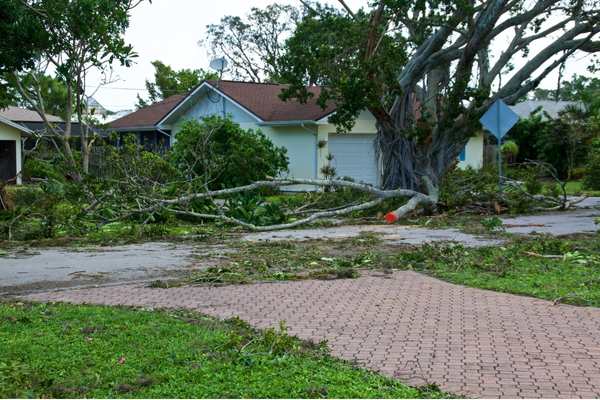When looking for a new home, you may consider buying a renovated one. This can be a great option, as they often come with updated appliances, floors, and walls. However, there are risks involved when buying these types of houses. You may have heard the term “lipstick on a pig” when referring to a house. This means that it may look nice on the outside, but there are still problems on the inside. In other words, the seller renovated the cosmetics but not the essential issues. This blog post will share everything you need to know about the dangers of buying a house from owners that remodeled it themselves. We want you to make an informed decision before buying!
What Does “Lipstick on a Pig” Mean?
The Real Estate industry uses the term “lipstick on a pig” or “lipstick flip” to describe a house that has been given surface-level renovations but is still structurally unsound. It’s essential to tell the difference between a quality renovation job and a “lipstick flip.” A “lipstick flip” renovation only addresses the cosmetics, such as paint, flooring, and appliances. A well-done renovation will consider the property’s foundation, plumbing, wiring, and more.
In other words, you can try to make a house look nicer with some paint and new furniture, but it will still have problems. The same is true for a pig. You can dress it up and put lipstick on, but it’s still a pig.
If you’re thinking of buying a renovated house, it’s crucial to inspect it carefully. This way, you’ll know how much work it needs and what it will cost. If you don’t do this, you may be responsible for all the repairs, which can be expensive.
The Risks of Buying a “Lipstick on a Pig”
Inspect the house before buying it, even if it looks great from the outside. Many times, homes that have been renovated or “flipped” can have hidden problems that are not noticeable right away. Foundation issues, water damage, and other structural problems can be expensive to repair.
If you’re considering a renovated house, check for these major issues.
Hidden Mold
Mold can grow in your house if it is damp on the walls or floors. Additionally, if there are leaks or damage from storms, mold can form. Mold is dangerous to your health because it can cause respiratory diseases and allergies. Ultimately, you don’t want to buy a house with mold problems. It can cause severe issues for your home and your health.
Foundation Problems
The foundation is one of the most critical parts of a house. It supports the entire structure. Additionally, if there are any problems with the foundation, it can be expensive to repair. Make sure you have a professional inspect the house before making an offer. This is important because often, house-flippers are not interested in fixing the home’s foundation. They want to sell it as soon as possible.
If you consider buying a renovated home, do your research. Hire a professional home inspector to look for hidden issues that may not be apparent to the naked eye. It is better to be safe than sorry when making such a significant investment.
Plumbing Issues
Another essential thing to consider when buying a home is plumbing. If the plumbing isn’t good, it can lead to severe problems in the future, like leaks and floods. Make sure you have a professional plumber inspect the property before making an offer.
If the seller used faulty materials or installed the piping system incorrectly, it could cause significant problems. Leaky pipes can not only be a nuisance, but they can also cause extensive damage to your home. If unchecked, they can lead to the growth of mold, which can weaken the structure of your home and potentially make it collapse.
What to Look for When Buying a Flipped House
When looking at a newly remodeled house, be sure to look at the overall condition of the home’s systems, structure, and safety. If you’re not sure what to look for, consider hiring a professional home inspector to check things out for you.
While many sellers are honest and want you to be happy with your purchase, some will try to take advantage of you. Don’t be afraid to ask questions and be skeptical when investigating the house.
Verify the Contractor
Make sure the home seller used a licensed and reputable contractor for renovations. If not, you could end up with a house that’s not up to code. That could cause problems ranging from paying for repairs yourself to accidents caused by dangerous handiwork. Ask for a list of all the work done on your home, including the receipts. This will ensure that the contractor did the job correctly.
Review the Permits
If the seller made repairs on the house without permits, that’s a big problem. It might mean that they didn’t do the work properly, and you might have to pay fees for permits that the seller never filed. To avoid any legal trouble, ask to see all the permits for work on the house.
Reviewing the permits can also help you determine if there are any outstanding fees on the property. You can check this by visiting your city’s website where the property is located. If the records aren’t online, call the building or development department to request a copy of the certificate of occupancy to ensure the home is up to code.
Ask for the Seller’s Statement of the Property Condition
If you’re buying a newly renovated home, the seller may not have lived in the house long enough to be aware of any problems. The State of Texas requires sellers to provide a Seller’s Statement of Property Condition if they have actual knowledge of material defects with the property. This allows the owner to discuss any information about the house’s condition, including any past issues.
Get a Home Inspection
It is vital to have a home inspection, even if the house seems in good condition. A home inspector will check for water damage, structural issues, and electrical problems. Cosmetic renovations can hide these issues. Additionally, some buyers might feel pressure to make a decision quickly. However, don’t skip the step of getting an inspection.
When Should I Call a Real Estate Lawyer?
If you realize you bought a house with significant problems that the seller didn’t tell you about, you may have a case against them. It is essential to know your rights as a buyer.
First, find out who is responsible for the repairs. If there are any problems with the property that the seller did not disclose, you may have a case against them. In Texas, sellers must state the condition of the house. Additionally, both the seller’s agent and the home inspector are responsible for telling the buyer about significant problems. If they do not do their job correctly, you may be able to hold them accountable too.
Sometimes, discussing problems with the seller can be the best solution. If the seller is willing to work with you, it may be possible to find an agreement about repairs. However, if the seller is not cooperative, you may need to take legal action. You should consult a real estate lawyer in Texas to discuss your options.
Why hire a Real Estate Lawyer in Texas
If you have discovered problems with your home that the seller should have informed you about, it is crucial to speak with a real estate lawyer. They will evaluate your case and determine if you have grounds for a lawsuit.
Dooley Noted Law is experienced with real estate law. We understand the ins and outs of this complex industry, and we fight for our clients’ rights.
If you think you may have a case, contact us today for a free consultation. We will review your case and discuss your legal options. It’s essential to have someone help you with this, so don’t try to do it alone. We’re here to help!




